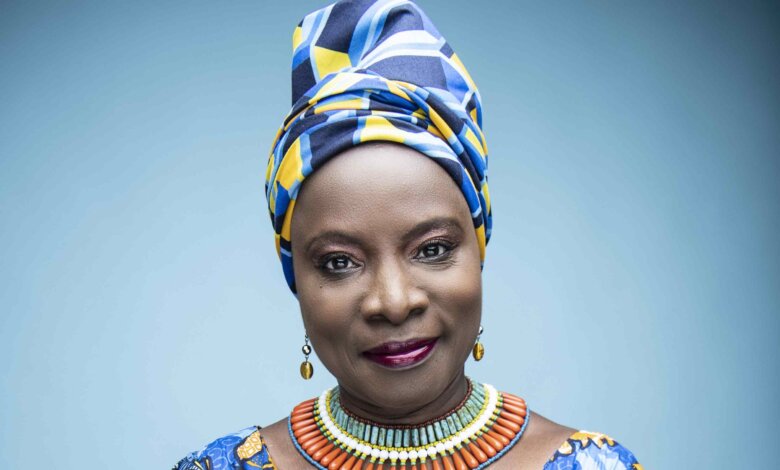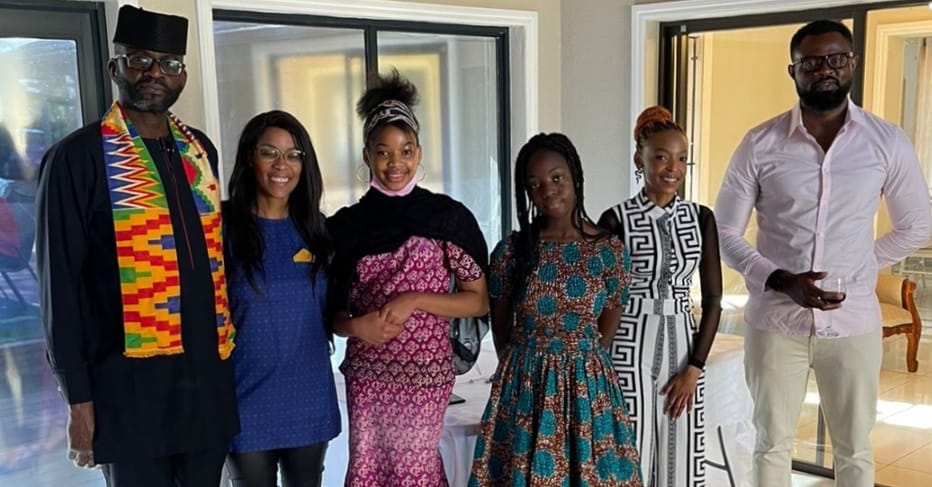Angélique Kidjo now first Black African on Hollywood Walk of Fame

Beninese singer, global cultural icon, and five-time Grammy winner, Angélique Kidjo has been announced as the first Black African performer to be honoured with a star on the Hollywood Walk of Fame, a monumental achievement that celebrates her over four-decade-long career and profound contributions to music and advocacy.
The announcement, which was part of the Walk of Fame’s Class of 2026, places Kidjo among an elite group of entertainers, including Miley Cyrus, Timothée Chalamet, and Demi Moore, set to be commemorated on Los Angeles’ iconic boulevard.
Others include the legendary gospel group The Clark Sisters, iconic hip-hop Cleveland collective Bone Thugs-N-Harmony, Afro Brazilian percussionist Paulinho da Costa, Zapata Mexican band Grupo Intocable, legendary Australian soft-rock Air Supply, Josh Groban, and Grammy award winning country artist and actor Lyle Lovett.
They are among the 35 honourees selected across categories such as motion pictures, television, recording, live theatre or live performance, and sports entertainment with notable figures like Emily Blunt, Rachel McAdams, and Marion Cotillard.
Born in Ouidah, Benin, to a Nigerian mother and a Beninese father, the 64-year-old Kidjo has long been celebrated as Africa’s “premier diva,” a title reaffirmed during the press conference announcing the 2026 honourees. Her musical journey began in Benin, where she absorbed the rich rhythms of West African traditions, before moving to France in the 1980s.
She honed her craft as a backing singer before launching her solo career with the 1990 album Parakou. Since then, Kidjo’s sound, blending African rhythms, jazz, funk, and pop, has earned her five Grammy Awards and worldwide acclaim.
Her selection for the Hollywood Walk of Fame, which includes over 2,700 stars, marks her as the first Black African to achieve this honour, joining South African actress Charlize Theron as one of the few African representatives on the Walk.
As a UNICEF and Oxfam goodwill ambassador, she has advocated for education, gender equality, and African development. Through her nonprofit, Batonga, founded to support education for young African girls, Kidjo has empowered countless lives, amplifying her impact as a cultural and humanitarian force.
Kidjo’s extraordinary 40-year career has been marked by 15 Grammy nominations and five wins, showcasing her profound influence on global music. Her first Grammy nomination came in 1995 for the vibrant “Agolo” music video, which celebrated Benin’s culture through vivid depictions of Fá deities, ileke bead-adorned costumes, Yoruba-style gele headwraps, and dynamic Zinli dance inspired by Fon traditions.
Kidjo’s global impact deepened with nominations for her 1998 album Oremi and her 2002 release Black Ivory Soul. Her first Grammy win arrived in 2007 with Djin Djin, under Best Contemporary World Music Album for its innovative blend of African rhythms and Western styles, notably featuring a collaboration with Alicia Keys.
She continued her success with Best World Music Album wins for Eve (2014), Sings (2015), and Celia (2019 and 2020), and secured Best Global Music Album for Mother Nature in 2022. Her collaborations with artists like Burna Boy, Yo-Yo Ma, and the Soweto Gospel Choir also earned Grammy recognition.
In 2023, Kidjo was awarded the Polar Music Prize, often regarded as the “Nobel Prize of Music,” making her only the third African artist to receive this honour, following South Africa’s Miriam Makeba (2002) and Senegal’s Youssou N’Dour (2013). The Sweden-based prize, presented by the Swedish Royal Family, recognized her as a “unique and unstoppable artist and songwriter.”
In the early 1980s, Kidjo faced a pivotal moment in Benin due to an oppressive political regime. After releasing her debut album Pretty in 1981, produced by Cameroonian Ekambi Brilliant and popular across West Africa, she began touring the region, setting the stage for her global ascent.
Her work has consistently highlighted Africa’s “tsunami of talent,” as she described it, advocating for greater global recognition of the continent’s contributions to art and culture.
Written by Oral Ofori
Oral Ofori is Founder and Publisher at www.TheAfricanDream.net, a digital storyteller and producer, and also an information and research consultant.





